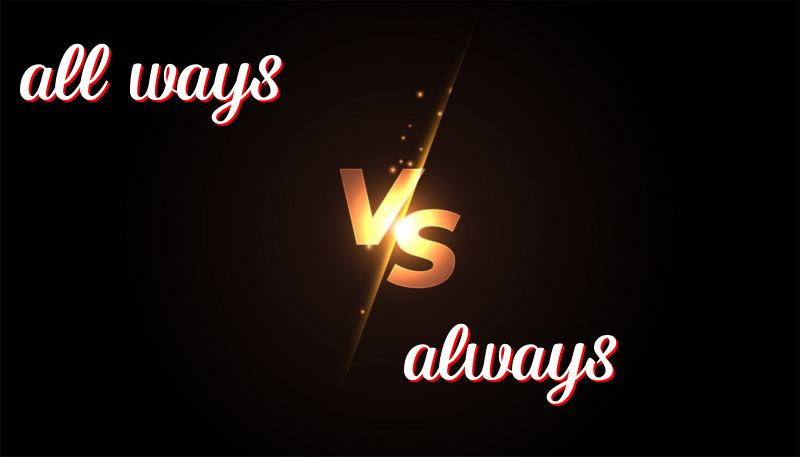All Ways vs. Always: Understanding the Difference
All Ways vs. Always
The words “all ways” and “always” sound the same, but they mean different things. They have different uses too. Let’s learn about them.
History
“All ways” comes from Old English. “All” means every, and “ways” means paths or methods. It means every method or path.
“Always” also comes from Old English. It means at all times, or every time. It shows that something happens every time.
How to Use Them
All Ways
“All ways” means every method or path. We use it to talk about different methods or paths.
Examples:
- She tried all ways to solve the problem.
- We looked all ways to find the lost cat.
- There are all ways to cook a meal.
- All ways lead to the same place.
- The teacher showed us all ways to answer the question.
Always
“Always” means at all times or every time. We use it to talk about something that happens every time.
Examples:
- She always does her homework.
- The sun always rises in the east.
- I always brush my teeth before bed.
- It is always a good idea to be kind.
- He always tells the truth.
Trick to Remember the Difference
Remember, “all ways” has a space because it talks about all the different paths or methods. “Always” has no space because it means every time, always together.
Summary
“All ways” means every path or method. Use it when talking about different ways to do something.
“Always” means every time. Use it when talking about something that happens every time.

Leave a Reply
You must be logged in to post a comment.